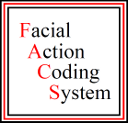The Facial Action Coding System (FACS) is a scientific system designed to measure human facial movements. FACS is an anatomically-based comprehensive system. This means FACS can be used to describe any possible set of facial movements. Originally developed by Dr. Paul Ekman, Dr. Wallace Friesen, and Dr. Joseph Hager, the latest version of the FACS manual can be purchased online at face and emotion. Facial Action Coding System Fundamentals The basic unit of measurement in FACS is the action … [Read more...]
The Truth About Microexpressions
There has been a lot of talk lately about the idea of microexpressions. TV shows like Lie to Me and Psych include elements based on the concept of micro expressions. The problem is that a lot of the material out there is wrong. I wrote this post to help explain what microexpressions really are, and to help separate some of the fact from fiction that is floating around the web. What are microexpressions? First of all let's get a proper understanding of what constitutes a micro expression. A … [Read more...]
Lie to Me Won’t Help You Detect Deception
Mike Murray sent this to me last week: A beautifully recursive study has shown that viewing an episode of the psychology of deception TV series Lie To Me makes people worse at distinguishing truth from lies. There is a lot of irony given the name of the show is "Lie to Me". … [Read more...]
Practical Examples of Deception Detection
Deception detection is one of those things that requires a lot of practice. Not surprisingly, there is a lot of misinformation floating around the web. Perhaps the classic is "eye accessing cues" which supposedly tell you if someone is lying by the direction they are looking. (note: this isn't true) The reality is that there is no single "way" to tell if someone is being deceptive or not. If you're interested in what deception detection is like in the real world, the June edition of the FBI … [Read more...]
Three Mistakes People Make about the 7 Basic Emotions
Human beings have seven basic emotions: joy, sadness, fear, anger, disgust, contempt, and surprise. An emotion is a basic emotion if it has been scientifically demonstrated to be expressed and recognized the same by all cultures. In effect, a basic emotion has been shown to be associated with a specific set of facial expressions. This sounds simple in practice, but there are a lot of misconceptions that people have about the seven basic emotions. Here are three common ones that I've seen. 1. … [Read more...]
Microexpression Training: A Review of MiX Professional
Humintell recently released their new microexpression training tool MiX Professional. It includes a number of new items not in the previous MiX product line. You can find a copy of my review here. … [Read more...]
5 Signs You’re Studying FACS
You look for a "mirror app" for your camera phone Your face hurts in places you never knew it could You start coding the faces on billboards You realize how varied "neutral" really is You catch yourself imitating other people's facial expressions in public … [Read more...]
Perception Matters: The “unit effect”
Saw this today on Arstechnica.com: "The human brain engages in all sorts of mental shortcuts in order to make quick judgements about the world, and some of them make us vulnerable to marketing. For example, consumers will readily attach weight to completely fictitious product statistics, preferring items with the most bogomips, even if they have no idea of what the significance of that figure is. That may be disappointing, but apparently it's even worse than that—even when they do know what the … [Read more...]










